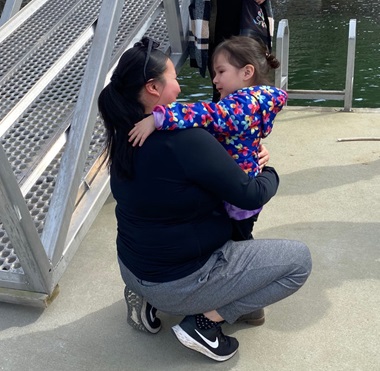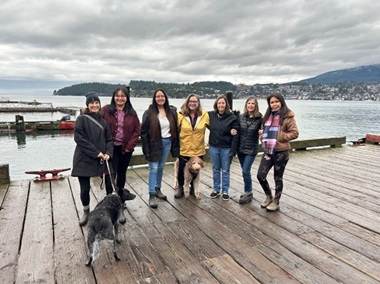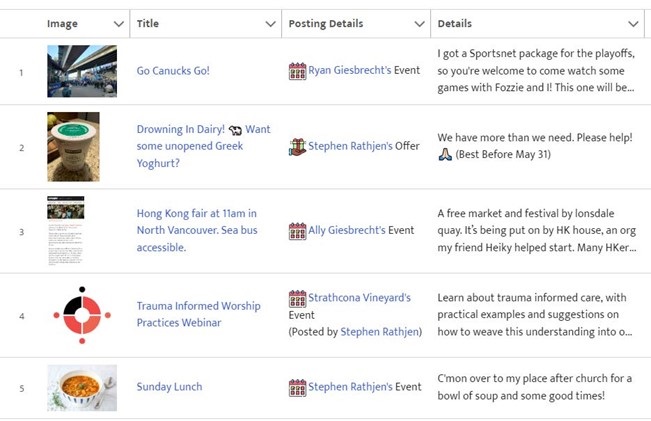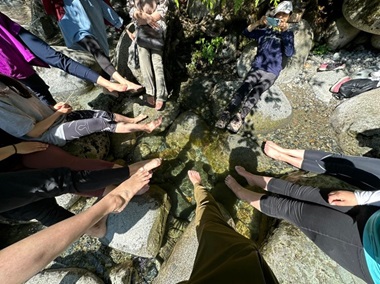
Hope City Church and New Story Community help Indigenous women on their recovery journeys.
Union Gospel Mission is again offering Transforming Communities Grants to help local churches support their neighbours more effectively.
Leslie Rosenau-Lai, UGM Advisor, Church Relations, describes the nature of the program.
Demonstrating the love of Christ, Union Gospel Mission is determined to transform communities by overcoming poverty, homelessness and addiction – one life at a time.
This mission will take our whole community, and so we are grateful to partner with churches across the city to live out the calling Jesus has set out for us as neighbours, congregations and institutions.
In 2021, Union Gospel Mission had the unique opportunity to partner with City in Focus to provide 18 grants to churches across Metro Vancouver and the Fraser Valley, who were offering vital support to neighbours in need.
Through meal programs, advocacy and community outreach, these communities of care were able to stabilize, increase or create new supportive programs in the height of the pandemic.
From 2022 to 2024, UGM continued this good work by creating the Transforming Communities Grant (TCG), supporting 41 different congregations across Metro Vancouver and the Fraser Valley.
What does this good work look like? It’s manifest in many different expressions, all with a focus on combatting poverty, homelessness, addiction and their rippling effects.
Below are three examples of recent grant recipient churches:

A New Story cohort on Keats Island.
Hope City Church, in partnership with New Story Community, helped Indigenous women on their recovery journeys. One woman had to take time away from her child in order to create health and stability for the family.
Cheryl Buchanan, Director of New Story Community, said:
There is truly, no greater joy than to watch a child reunite with her mama after seven months apart. “Mommmyyy! Are you my mommy?!” will be forever imprinted in my heart as the two embraced and held each other.
To be separated from your children for over six months is almost unbearable. But this seemingly long time is, in perspective, brief in light of the rest of their lives. This is the beginning of their new story.
- Strathcona Vineyard, close neighbours to our 601 Hastings location, created an online platform where people in the neighbourhood could share tools, extra groceries, dinner invitations, local events and requests for needs or help. This platform is named FIMBY, which stands for “family in my backyard,” in contrast to the common phrase of “not in my backyard” (NIMBY) when it often comes to creating resources in neighbourhoods for people struggling with poverty.

Strathcona Church created the FIMBY (family in my back yard) platform.
Tenth Church, in supporting refugees through their transition to Canada, created a staff position to help with the many families and individuals that needed assistance in finding housing, accessing language programs and entering the workforce.
One volunteer, Rosaline, reflected:

Tenth Church supports refugees.
Sometimes, I shed shared tears over homesickness and hold hands while listening to painful stories, just as any of us would do for each other.
All I do is to simply live life with new friends, but I get the benefit of front-row tickets to witness how the Holy Spirit works miracles in their lives.
Every newcomer or refugee I have met has been intelligent, resilient and generous with their heart, spirit, time and food. (So much delicious food!)
Many build a new life in Canada and say they found their first Canadian friend at Tenth. Some are curious about why and how the church can give without expectation of anything in return, slowly becoming curious about this ‘Jesus’ character.
Because UGM is a service provider rather than a funder, the TCG offers relatively modest funding and technical assistance for strategic expansion, improvement and coordination of congregationally based initiatives addressing poverty, homelessness, and/or addiction.
These grants are meant to enable well-considered change and closer collegiality rather than to maintain ongoing operations or fuel simple growth; we focus on leveraging over sustaining. Applications from churches looking to partner in the creation of flourishing communities will be prioritized. Together, we can improve the social architecture of the Lower Mainland!
See here for more details, including eligibility criteria and grant application form. Applications must be received by 5 pm, January 31, 2025.
**********************************************
Two other grants are available to congregations (and others) now:
- Canada Sumer Jobs program, deadline December 19. Deina Warren of the Canadian Centre for Christian Charities has done a useful assessment of the program.
- Vancouver Foundation Transforming Systems grant, deadline January 14.
